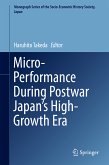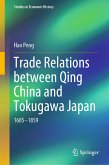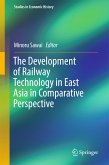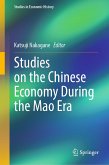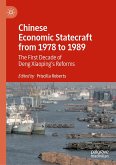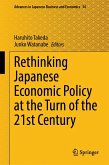This book shows the savings was not only rich's accumulation of wealth but ordinary citizen's daily spares. The spare money helped whole nation's economic development, especially supported relatively small farmers and self-employed workers. The personal small savings became huge funds for the basis of modern Japanese micro-credit and emergency bailout loan. Postal Savings Bank and nationwide cooperatives played the role in managing. This financial network was independent from ordinary financial system composed of private banks and securities market, and complement its function. The personal small savings funds in Japanese economy saved its society from various type of calamity and supported economic equalization as alternative financial system which acted as Not-for-Profit enterprises.
Dieser Download kann aus rechtlichen Gründen nur mit Rechnungsadresse in A, B, BG, CY, CZ, D, DK, EW, E, FIN, F, GR, HR, H, IRL, I, LT, L, LR, M, NL, PL, P, R, S, SLO, SK ausgeliefert werden.



